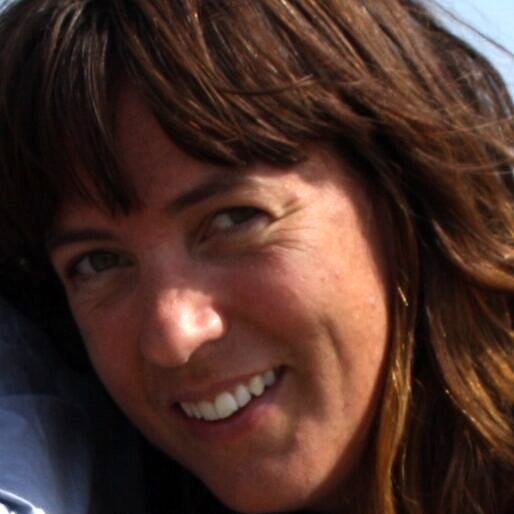Charlotte Faurie
The research programs that I develop concern the physiological and behavioral adaptations of the human species. They are located at the interface between evolutionary sciences, medicine and human sciences. The evolutionary approach, by taking into account the processes of natural selection and evolutionary trade-offs, has opened many avenues to current issues in the field of health. In particular, investigations on local adaptations and on the adaptive specificities of women promise multiple applications for the development of individualized medicine. However, a lot of work remains to be done to strengthen the bridges between physicians and evolutionary biologists, and in particular to bring the research topics closer to the concrete problems of clinicians and patients. This is why I have devoted the last few years to medical studies, which allowed me to become a doctor in 2021. My current research projects concern: genetic and behavioral mechanisms of local adaptation to risk, the effects of oxytocin administration on the mother-child relationship and child development, the influence of the menstrual cycle on inflammatory diseases, and the interest of probiotic prescription.
- Charlotte Faurie, Alexandra Alvergne, Demi Cheng, Claire Duflos, Liset Elstgeest, et al.. Can pain be self‐managed? Pain change in vulnerable participants to a health education programme. International Journal of Health Planning and Management, 2024, 39 (5), pp.1313-1329. ⟨10.1002/hpm.3802⟩. ⟨hal-04751162⟩
- Aïda Nitsch, Charlotte Faurie, Virpi Lummaa. Sibling competition, dispersal and fitness outcomes in humans. Scientific Reports, 2023, 13 (1), pp.7539. ⟨10.1038/s41598-023-33700-3⟩. ⟨hal-04097944⟩
- Gwen-Jirō Clochard, Aby Mbengue, Clément Mettling, Birane Diouf, Charlotte Faurie, et al.. The effect of the 7R allele at the DRD4 locus on risk tolerance is independent of background risk in Senegalese fishermen. Scientific Reports, 2023, 13 (1), pp.622. ⟨10.1038/s41598-022-27002-3⟩. ⟨hal-03954770⟩
- Charlotte Faurie. Evolution de la douleur au cours du programme européen d'éducation à la santé EFFICHRONIC, chez des patients vulnérables, et atteints de maladie chronique. Médecine humaine et pathologie. Université de Montpellier, 2022. Français. ⟨NNT : ⟩. ⟨tel-04270111⟩
- Arnaud Tognetti, Guila Ganem, Michel Raymond, Charlotte Faurie. Female mound-building mice prefer males that invest more in building behavior, even when this behavior is not observed. Behavioral Ecology and Sociobiology, 2018, 72 (9), ⟨10.1007/s00265-018-2569-4⟩. ⟨hal-01865013⟩
- Arnaud Tognetti, Noriko Yamagata-Nakashima, Charlotte Faurie, Ryo Oda. Are non-verbal facial cues of altruism cross-culturally readable?. Personality and Individual Differences, 2018, 127, pp.139 - 143. ⟨10.1016/j.paid.2018.02.007⟩. ⟨hal-01865028⟩
- Jeanne Bovet, Melissa Barkat-Defradas, Valérie Durand, Charlotte Faurie, Michel Raymond. Women's attractiveness is linked to expected age at menopause. Journal of Evolutionary Biology, 2018, 31 (2), pp.229-238. ⟨10.1111/jeb.13214⟩. ⟨hal-01829172⟩
- M. Charpentier, Laurent Givalois, Charlotte Faurie, O. Soghessa, F. Simon, et al.. Seasonal glucocorticoid production correlates with a suite of small-magnitude environmental, demographic, and physiological effects in mandrills. American Journal of Physical Anthropology, 2018, 165 (1), pp.20 - 33. ⟨10.1002/ajpa.23329⟩. ⟨hal-01923498⟩
- Claire Berticat, Valérie Durand, Michel Raymond, Charlotte Faurie. Link between Parental Separation and Decreased Performance in French High School Students. Journal of Behavior, 2017. ⟨hal-01834157⟩
- Charlotte Faurie, Clement Mettling, Mohamed Ali Bchir, Danang Hadmoko, Carine Heitz, et al.. Evidence of genotypic adaptation to the exposure to volcanic risk at the dopamine receptor DRD4 locus. Scientific Reports, 2016, 6 (37745), 7 p. ⟨10.1038/srep37745⟩. ⟨hal-02062364⟩


